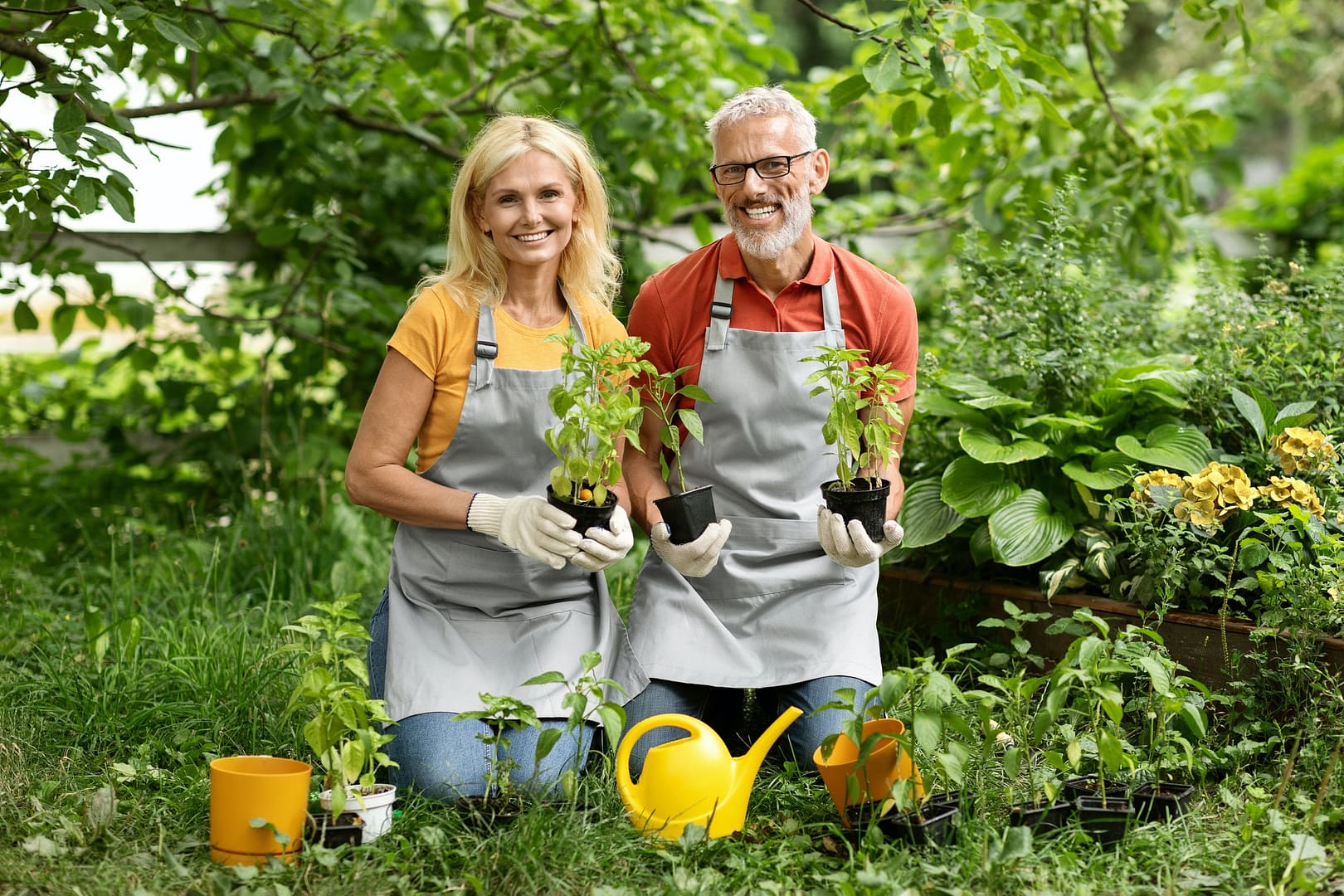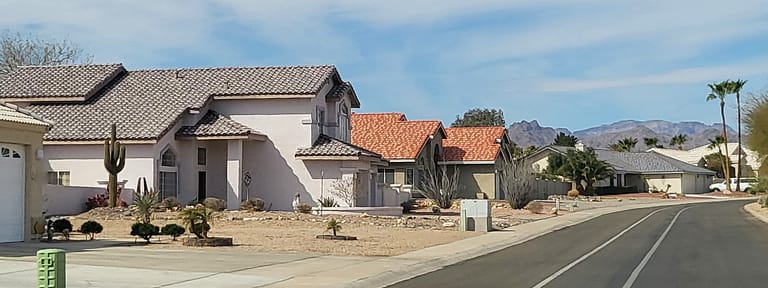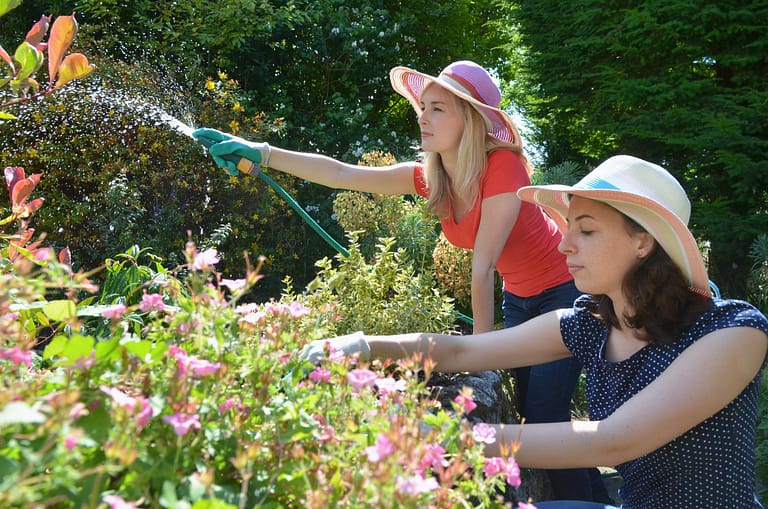Smart Landscaping for Dallas Homes
Are you interested in creating a sustainable and thriving outdoor space for your Dallas home?
Smart Landscaping for Dallas Homes offers practical and environmentally friendly solutions.
By using native and adaptive plants, you can save time and money while contributing to a more sustainable environment.
Efficient irrigation and smart yard planning can help you achieve a stunning landscape that reflects Dallas's unique beauty and promotes environmental consciousness among homeowners.
Key Takeaways
Are you looking to create a sustainable and thriving outdoor space for your Dallas home? Smart Landscaping for Dallas Homes provides practical and environmentally friendly solutions. By using native and adaptive plants, you can save time and money while contributing to a more sustainable environment. Additionally, efficient irrigation and smart yard planning can help you achieve a stunning landscape that reflects Dallas's unique beauty and promotes environmental consciousness among homeowners.
Water-Efficient Plant Selection
Selecting water-efficient plants for your Dallas home is crucial for conserving water and creating a sustainable landscape.
In Texas, water conservation is vital, making it important to choose plants that are well adapted to the local climate.
Drought-tolerant and pest-resistant plant varieties not only reduce water usage but also attract beneficial wildlife and insects to your landscape.
By incorporating smart irrigation practices and using native and adaptive plants, you can significantly reduce stormwater runoff and prevent water pollution in Dallas.
Additionally, these plants provide a habitat for local wildlife, contributing to the ecological balance of the area.
Making informed choices about the plants in your landscape can lead to a more sustainable and water-conscious environment for your Dallas home.
Drought-Tolerant Landscape Design
When planning a drought-tolerant landscape, it's important to choose plants that thrive in the Texas climate. This not only reduces water usage but also ensures a vibrant and attractive outdoor space.
Smart irrigation systems and soil moisture retention techniques are also crucial for maintaining a healthy and sustainable landscape, especially during dry periods. For example, using native plants like Texas sage and black-eyed Susan can significantly decrease water needs while adding natural beauty to your outdoor environment.
Additionally, installing drip irrigation and applying mulch can help retain soil moisture, further supporting the health of your drought-tolerant landscape.
Water-Saving Plant Choices
Looking for water-efficient plant options for your Dallas home's drought-resistant landscape design?
Choosing native plants that thrive in the Texas landscape is crucial for reducing water usage. Native plants have naturally adapted to the local climate, requiring less water and promoting sustainable landscaping.
By incorporating drought-resistant plants into your landscape design, you can save water while still enjoying a vibrant outdoor environment. These water-saving plant choices not only contribute to an eco-friendly landscape but also help homeowners reduce water usage and costs.
Embracing native, drought-tolerant plants is a smart and environmentally conscious approach to landscaping in Dallas.
Next, let's explore effective irrigation methods to further enhance your water-saving efforts.
Efficient Irrigation Methods
Efficient irrigation methods play a crucial role in preserving the water-saving advantages of native and drought-tolerant plants in your Dallas landscape design. When it comes to ensuring efficient irrigation for your native Texas landscape, consider the following strategies:
- Smart Controllers: Use smart controllers to automate sprinkler systems and optimize watering schedules, ensuring water is used efficiently.
- Drip Irrigation: Incorporate drip irrigation to deliver water directly to the roots of plants, minimizing wastage and promoting plant health.
- Rain Sensors: Consider installing rain sensors to prevent unnecessary watering during rainy periods, conserving water effectively.
Implementing these efficient irrigation methods not only conserves water but also contributes to a sustainable environment while maintaining a beautiful landscape.
Soil Moisture Retention Techniques
To improve the soil's ability to retain moisture in your Dallas landscape, adding organic matter like compost, peat moss, or well-rotted manure is essential. These materials significantly enhance moisture retention, reducing the need for frequent watering. This technique not only supports healthier plant growth but also contributes to sustainable outdoor lawn care practices, ultimately requiring less water over time.
Moreover, using mulch in garden beds helps conserve moisture, suppress weeds, and regulate soil temperature. Organic mulches such as wood chips or pine straw can enhance soil structure and minimize evaporation.
Implementing these soil moisture retention techniques can help create a drought-tolerant landscape that thrives in the Dallas climate and reduces water consumption and maintenance needs.
Now, let's delve into sustainable hardscaping solutions that complement your water-wise landscaping efforts.
Sustainable Hardscaping Solutions
When you're planning the landscaping for your Dallas home, it's essential to think about incorporating sustainable hardscaping solutions. These not only withstand local weather conditions but also help conserve water and promote environmental sustainability.
Here are some sustainable hardscaping ideas to consider:
- Permeable Pavers: These pavers allow water to seep through, reducing stormwater runoff and replenishing the groundwater.
- Drought-Resistant Rock Gardens: Use decorative stones and native plants to create visually appealing, low-maintenance areas that conserve water.
- Rain Gardens: These gardens help manage water runoff, prevent pollution, and provide a habitat for local wildlife.
Low-Maintenance Native Planting
If you want a sustainable and attractive yard in Dallas, consider using low-maintenance native plants. These plants are well-suited to the Texas climate and need minimal water and upkeep. They also help create a thriving ecosystem by attracting beneficial wildlife and insects while conserving water and reducing pollution. Here are some low-maintenance native plants suitable for your home landscape:
| Plant | Sunlight | Water Needs |
|---|---|---|
| Texas Sage | Full sun | Low |
| Black-Eyed Susan | Full sun | Low |
| Purple Coneflower | Full sun | Low |
| Yucca | Full sun | Low |
| Lantana | Full sun | Low |
These native plants not only require little maintenance but also contribute to the local ecosystem's biodiversity. Transitioning to low-maintenance native plants is a sustainable choice for your Dallas home landscape. Next, let's explore 'xeriscaping tips for Dallas homes'.
Xeriscaping Tips for Dallas Homes
Transitioning to xeriscaping in your Dallas home involves choosing plants that can withstand drought and using landscaping methods that save water. To create an attractive and sustainable lawn, consider these tips:
- Select plants that are native to the region or have adapted to the local climate. These plants need less water to thrive.
- Incorporate hardscaping features like gravel paths or rock gardens to reduce the area covered by grass and minimize water usage.
- Use mulch in flower beds to retain moisture, prevent evaporation, and keep the soil cool.
By following these xeriscaping tips for Dallas homes, you can build a beautiful and eco-friendly landscape that flourishes in the local environment while conserving water resources.
Next, let's delve into smart irrigation and water conservation techniques to further improve your water-efficient landscaping.
Smart Irrigation and Water Conservation
Smart irrigation and water conservation are essential for homeowners in Dallas. Efficient watering methods, choosing drought-resistant plants, and using weather-based irrigation systems are crucial for conserving water and maintaining a healthy landscape.
These practices not only benefit the environment but also help reduce water usage and maintenance costs for homeowners. For example, by installing weather-based irrigation systems, homeowners can ensure that their landscapes receive the right amount of water based on real-time weather conditions, thus preventing water wastage.
Efficient Watering Techniques
Are you interested in saving water and maintaining a healthy landscape for your Dallas home? Using efficient watering techniques can help you achieve this goal and improve the appearance of your property.
Here are some options to consider:
- Smart irrigation systems designed for your specific square footage can help you use water more effectively.
- Choosing native and adaptive plants can reduce water usage, lower your water bills, and promote sustainability.
- Investing in mulch can significantly decrease water evaporation and maintain soil moisture over time.
Drought-Resistant Plant Selection
Choosing drought-resistant plants for your Dallas home is essential for conserving water and maintaining a sustainable landscape.
These plants, such as prickly pear, desert willow, and yucca, are well-suited to the hot Texas climate and require minimal watering.
Not only do they withstand drought, but they also bring a local aesthetic to your outdoor space.
Incorporating these plants into your landscape not only helps conserve water but also reduces maintenance, making it an eco-friendly choice for your Dallas home's outdoor environment.
Weather-Based Irrigation Systems
Consider installing a weather-based irrigation system for your Dallas home's landscape to efficiently manage water usage and conserve resources.
These systems offer several benefits, including adjusting water usage based on Dallas' varying weather conditions like droughts and floods.
By incorporating these systems, you can minimize water pollution and conserve precious water resources by reducing stormwater runoff.
This approach ensures regularity and moderation in maintaining your lawn and garden, promoting a sustainable and water-wise landscape for your outdoor spaces.
It also helps in planning and maintaining a lush and vibrant landscape while being mindful of the local water resources.
Frequently Asked Questions
What Is the Fastest Growing Shrub for Privacy in Texas?
If you're searching for a fast-growing shrub for privacy in Texas, consider Texas Sage. This plant is well-suited for Texas landscaping due to its quick growth and ability to withstand drought. It not only provides privacy but also requires minimal maintenance, making it an ideal choice for your landscaping needs.
What Is the Best Low Maintenance Landscaping?
When it comes to creating a low maintenance landscape, it's important to choose plants that can thrive with minimal care. Opt for native species like Red Yucca, Texas Sage, and Golden groundsel, as they are naturally resistant to drought and require less attention. Additionally, consider using sustainable landscaping techniques such as mulching, hardscaping, and smart irrigation. These methods not only help conserve water but also reduce the effort needed for maintenance. By incorporating these strategies, you can enjoy a beautiful outdoor space without the constant need for upkeep.
What Is the Least Expensive Backyard Landscaping?
Looking for affordable backyard landscaping? Quick installation and cost-effective options are essential. Consider using native plants, low-maintenance ground cover, and efficient irrigation. These choices can enhance the beauty of your outdoor space without spending a lot of money. Additionally, you can explore DIY projects such as creating a simple gravel or mulch pathway or adding a small patio area using budget-friendly materials. These simple and practical landscaping ideas can help you create a beautiful backyard without exceeding your budget.
How Can I Cool My House With Landscaping?
If you want to keep your Dallas home cool using landscaping, consider planting shade trees, adding water features, and using drought-tolerant plants. These choices can help you save water, lower energy costs, and create a pleasant outdoor environment for your home. Additionally, these landscaping strategies can contribute to a more sustainable and eco-friendly living space.







